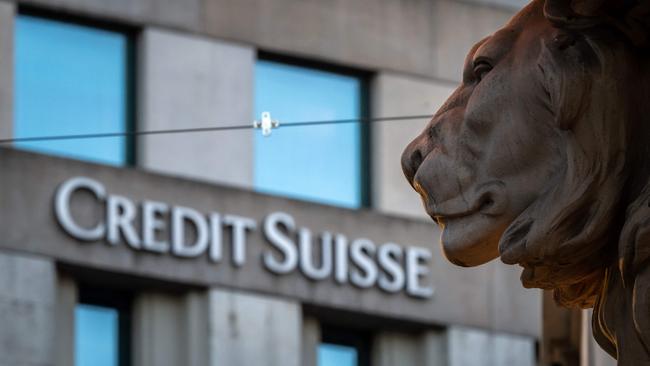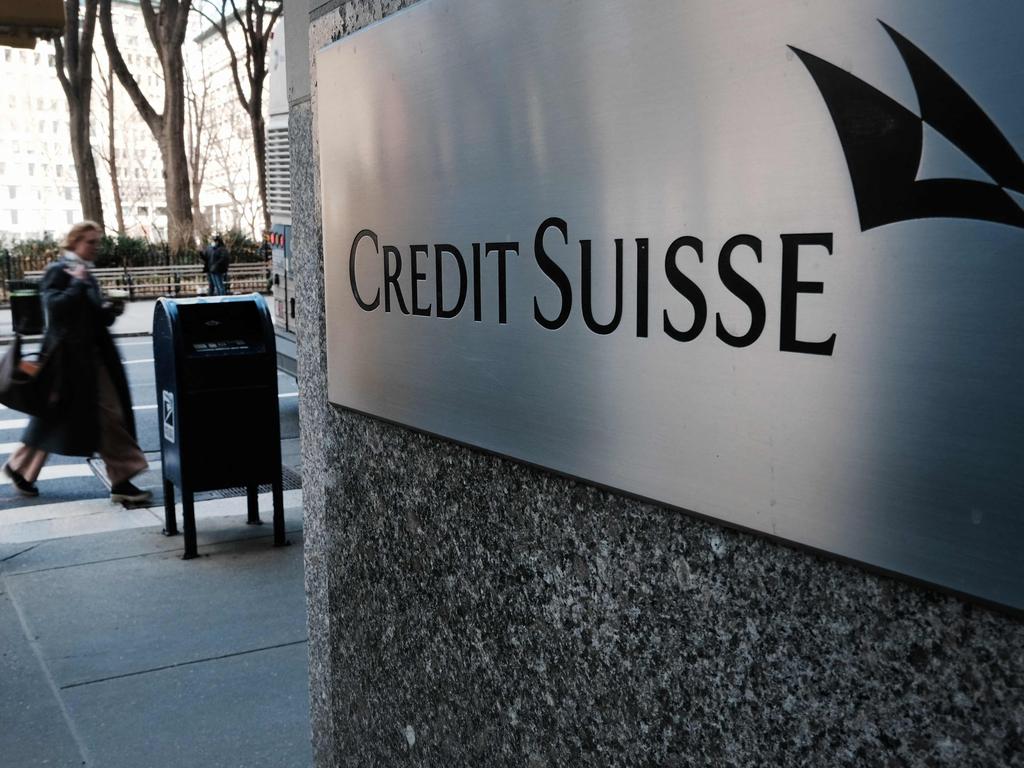
Global banks are interconnected, particularly via derivatives, so any European crisis impacts banks and the banking system around the world.
The European crisis centres around Credit Suisse – its shares fell 30 per cent at one point last night before closing down 24 per cent.
That triggered big falls in other European banks, a slump in the oil price and lower metal prices apart from gold, which surged.
US bond yields slumped as many fled to so-called safety.
Naturally Wall Street also slumped but, recovered much of the ground in late trading.
Such a widespread global crisis inevitably impacts interest rates and makes the fight against inflation much harder because it removes harsh medicine from the table.
The banking turmoil is starting scare not just the markets.
Google searches for “why banks fail” are up 90 per cent and “is my money safe” searches are up 43 per cent.
In the US people are splitting their deposits between banks limiting each deposit to the $250,000 insured limited.
In Europe the level of population scare is set to explode which will put, pressure on bank liquidity.
Australians will also ask the same questions.
For what it’s worth I believe our banks are among the safest in the world.
The left bemoans our high bank profitability but, along with their spread of borrowers, it makes our banks very safe.
But their high share prices are vulnerable to a fall in a world that has become scared of banks.
The likelihood of the world encountering a slower growth high inflation period is now much more likely as a result of the European markets prediction of a looming crisis.
But in the early morning of March 16, Australian time, the carnage in European market created a fear that we were looking at something far more serious than an event that simply influences inflation and interest rates – a European bank crisis that can’t be contained to Europe.
In Ukraine the European problems are a big danger because the western world may not be able to afford the money to fight Russia if the crisis deepens.
At this stage all the players are in denial but there is clearly something seriously wrong at Credit Suisse which has been plagued by disasters in recent times.
Many commentators are linking the Credit Suisse market fall to the collapse of the US Silicon Valley Bank.
The regional US bank might have been the trigger but, with hindsight, the Credit Suisse crisis harks back to its strategies in the previous decade to develop a global bank that would rank with the big American banks.
It simply did not have the management ability to match the Americans and took risks that cost the bank billions and weakened its structures.
The latest round of crises started to emerge late in 2022 then when there were rumblings that they were problems in the Indian Adani empire where Credit Suisse was deeply involved.
In the final quarter of 2022 there was a sudden rise in deposit withdrawals from Credit Suisse as rumours of trouble spread.
Late in January the Swiss investment bank stopped accepting notes of key Adani companies as collateral for margin loans to its private banking clients. At the time the emphasis was placed on the reported problems of Adani but clearly there were implications for Credit Suisse
Then on Tuesday this week Credit Suisse shocked the market with an announcement that it had found “material weaknesses ” in its financial reporting processes for 2022 and 2021.
The scary revelation was disclosed in the Swiss bank’s annual report which had previously been scheduled to be released in the previous week but was delayed by a call from the US Securities and Exchange Commission that was actually related to a “technical assessment” of previously disclosed revisions to consolidated cash flow in the years ended December 2020 and 2019 – prior to the company’s revelation of problems in 2021 and 2022.
Rightly or wrongly, the market fears these announcements an iceberg tip of much deeper problems.
Credit Suisse’s largest investor, Saudi National Bank, was clearly shocked by the revelations.
The Saudi Bank took a 9.9 per cent stake in Credit Suisse last year as part of the Swiss lenders $US4.2bn ($6.3bn) capital raising to fund a massive strategic overhaul aimed at improving its investment banking performance and addressing its many risk and compliance failures.
The Saudi Bank stated that it could not provide the Swiss bank with any further financial assistance blaming Saudi regulations which limited its stake to 10 per cent.
Having burned one saviour it will be very hard for Credit Suisse to find another because no one knows how deep its problems are.
Meanwhile, Swiss regulators are exploring options to stabilise Credit Suisse. The company is still in denial, but few believe them.
The world will be hoping the markets are wrong about Credit Suisse and that its problems can be managed by the Swiss government.
It’s rare for markets to be wrong when a share price falls 30 per cent in one day.








If the markets are right then Europe has a far more serious banking problem than the US and it threatens world economies.